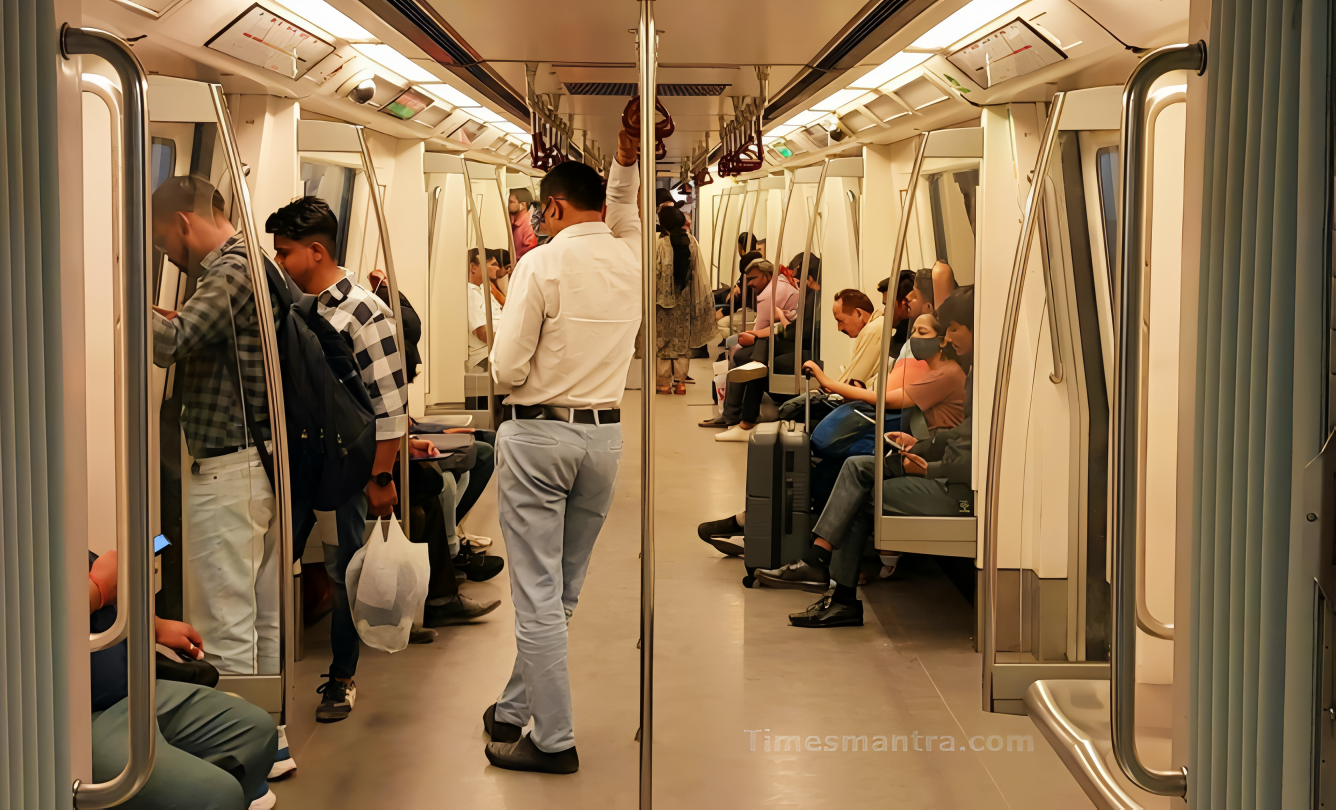Delhi Metro Scam ₹570 Exposed: Commuter Warns of Fraud Trick
Introduction: A Scam That’s Gone Viral
A recent viral social media post has set off alarms among regular Delhi Metro commuters. A passenger revealed an encounter with a stranger who claimed that the Delhi Metro server was down and requested ₹570 in cash to recharge his metro card. This seemingly small request turned into a much bigger story when the post gained traction, warning others of a potentially widespread Delhi Metro scam. With rising digital payments and a busy public transport network, scammers are finding new ways to exploit the public — and this one has drawn serious attention.
What Happened in the Viral ₹570 Scam Incident?
According to the commuter’s viral post, a man approached him at a metro station asking for ₹570, saying that the metro recharge server was temporarily down. He claimed he had no way to get home and promised to return the money via UPI later. The scammer even showed a fabricated screenshot to gain trust. Fortunately, the passenger sensed something was wrong and didn’t fall for it — instead, he posted the story online to alert others.
This simple trick relies on urgency, guilt, and social pressure — three psychological levers commonly used in emotional fraud. The scammer bets on finding a helpful person willing to lend a small sum. While ₹570 doesn’t seem like a huge amount, repeated attempts can make this a lucrative scam.
Is This Scam Real? DMRC Responds
As of now, the Delhi Metro Rail Corporation (DMRC) has made no official statement regarding a server outage on the day of the incident. There’s no protocol where DMRC encourages commuters to lend money to others in case of a recharge issue. All metro stations have functioning recharge counters, token vending machines, and mobile QR ticketing systems.
This proves the incident was a deliberate scam, not a legitimate cry for help. It serves as a reminder that no matter how convincing someone sounds, strangers asking for money in public spaces should always be treated with caution.
Why Scams Like This Work
Scams like the ₹570 request are successful because they exploit:
-
Sympathy: The scammer presents a situation where they seem helpless and honest.
-
Urgency: Claims like “server down” or “I’ll miss my train” push the target to act quickly.
-
Low Risk to Victim: A small amount like ₹500-600 feels harmless to many.
-
Social Conditioning: We are taught to help others in need, and scammers weaponize this empathy.
Such fraud tactics aren’t new, but they are evolving with the times. In a digital world where QR codes and UPI payments are common, fake screenshots and server excuses add credibility to the lie.
How to Identify and Avoid Metro Scams
Here are a few tips every Delhi Metro commuter should keep in mind:
-
Never give money to strangers in stations.
Even if their story sounds legitimate, suggest they speak to customer service. -
Verify their claim.
If someone says the server is down, go to the ticket counter and confirm it. -
Be cautious of urgency.
Scammers often create pressure to bypass your logic and play on emotion. -
Avoid giving out your UPI ID or scanning QR codes.
These can also be manipulated to pull money instead of transferring. -
Report suspicious activity.
Tell the nearest metro guard, station master, or use the DMRC helpline to alert authorities.
Role of Social Media in Raising Awareness
This incident went viral because the commuter shared it with detailed screenshots and a clear warning. In today’s world, social media is a powerful tool to fight scams. One user’s story can prevent hundreds of others from falling victim to the same fraud.
The DMRC and Delhi Police are now actively monitoring such posts to track patterns and build awareness. Citizens sharing real experiences can often make a bigger difference than official campaigns.
Delhi’s Growing Digital Scam Scene
Delhi, being a densely populated and digitally active metro city, is seeing a surge in small-scale scams like this. From fake UPI refund requests to emotional public fraud, scammers are experimenting with tactics that exploit people’s willingness to help.
This incident adds to the growing list of urban digital scams, where the fraudster doesn’t use violence or theft — just words and emotion. The impact, however, is still financial and emotional.
DMRC: Always Use Official Channels
Delhi Metro encourages all passengers to use official apps, counters, and QR systems for travel and recharges. If you are in trouble or see someone else struggling:
-
Visit the customer care counter available at every station.
-
Use the Delhi Metro app for real-time status and digital ticketing.
-
Call the helpline number 155370 for immediate assistance.
Avoid trusting anyone asking for help with money, especially without identity verification or official documentation.
Final Thoughts: Stay Smart, Stay Safe
The Delhi Metro ₹570 scam is not just a one-time trick — it’s a warning sign. As fraudsters become more clever, commuter awareness must increase too. Trust your instincts. If something feels off, it probably is. Help people — but do it the smart way, through official channels. Scams can be subtle, emotional, and seem harmless, but they erode public trust and create real harm.
Let’s build a safer commuting environment by staying informed, cautious, and always ready to report what doesn’t feel right. Share this information to help others and protect our public spaces from such deceptive practices.
- Microsoft Pakistan Closes: 25-Year Era Ends, Tech Impact
- Siri Set for AI Boost: Apple Taps ChatGPT & Claude for Upgrade
